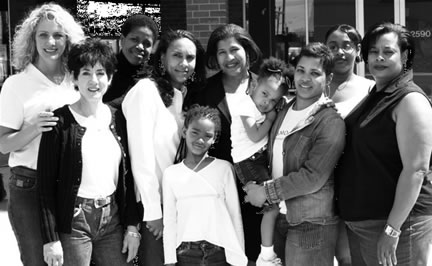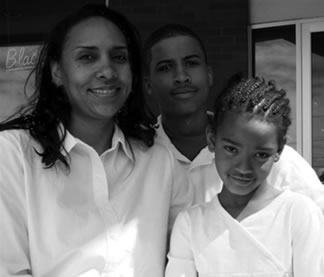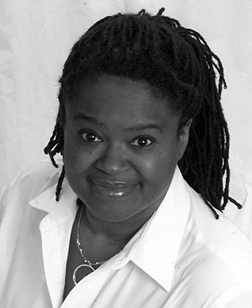By Stephanie Cross
According to the 2006 Families and Living Arrangements report put out by the United States Census Bureau, there were 12.9 million one-parent families in 2006; of these, 10.4 million were single-mother families and 2.5 million were single-father families. A population of single-parent households run predominately by women continues to grow in this country. If people were to depend on the stereotypes of single mothers, it would register as minority and poor. The reality is that a large percentage of single mothers are working a variety of jobs and choosing careers based on their desired passions. These invisible women are the next-door neighbor, colleague, friend and often a family member. Labels have continually defined single mothers as young, lazy and ill-equipped. Single working mothers are a powerful group of women because they turn out to vote in larger numbers than any other group, especially as characterized by race, ethnicity and gender.

An annual membership survey conducted in 2006 by Single Mothers of Color (SMOC), an organization designed to fill the gap and build strong families, one mother at a time, revealed a median yearly income in the Denver metro area for single working mothers of $35,318 per year. Karen McDade, an administrative assistant, shared that, “My biggest challenge is being able to live up to the responsibility financially.”
This concern is dittoed by Audrey Murphy, a United States Postal Service mail handler and mother of a teenage daughter.
“My greatest concerns are having enough financial resources to see that my child has a life equal or better than mine,” she said.
 A recent report about the economics and self-sufficiency of women and girls in Denver County, issued by the Women’s Foundation of Colorado, revealed the monthly cost for basic necessities to live in the county for an adult and one child is $2,819, or $16.02 per hour. It jumps to $4,975 per month, or $28.27 per hour, for an adult with three children ranging from infant to school-aged. These basic necessities are housing, food, transportation, childcare, healthcare, taxes and other unexpected expenses. Many working single mothers have yet to meet the $16.02 per hour wage benchmark associated to survive, and they monthly find themselves deciding between which basic necessity is more important. The Colorado Women’s Agenda concurred that the biggest problems facing working women are combining work, family and equal pay. A recent report about the economics and self-sufficiency of women and girls in Denver County, issued by the Women’s Foundation of Colorado, revealed the monthly cost for basic necessities to live in the county for an adult and one child is $2,819, or $16.02 per hour. It jumps to $4,975 per month, or $28.27 per hour, for an adult with three children ranging from infant to school-aged. These basic necessities are housing, food, transportation, childcare, healthcare, taxes and other unexpected expenses. Many working single mothers have yet to meet the $16.02 per hour wage benchmark associated to survive, and they monthly find themselves deciding between which basic necessity is more important. The Colorado Women’s Agenda concurred that the biggest problems facing working women are combining work, family and equal pay.
Childcare needs for a single working mother can vary substantially depending mostly on cost and trust. It is one of the most important forces that can enable a mother to work and provide for her family. The SMOC survey further revealed the cost for childcare ranges from $300 to $800 per month for one child, a huge portion of the budget for a one-income family. Conversations with single working mothers seeking childcare disclose that many cannot afford an organized care facility on their income level, and they resort to using a grandparent or family member and multiple other arrangements. When a mother seeks financial assistance for childcare based on having a single income, she is easily disqualified for making not much over the required income level, without any regard or consideration that she is the only income maintaining the household.
Continued appeals to our political representatives about the Federal Income Guidelines need to be reviewed to capture those who are working single parents. Elizabeth Lee, an empty nester and teacher and tutor, said that her main issue as a single mother was finding adequate childcare.
“As a single parent, childcare was a major concern for me because I had to make sure that whomever I entrusted my child to would not cause any hurt or harm to my child,” she said.
If working single mothers do not have good and adequate childcare, along with job flexibility, productivity on jobs can suffer as well as their health due to worry and fear. By being the main breadwinner for the household, there is not much time available to become ill. New studies by women’s organizations reveal this population of women can suffer from bouts of depression and mental illness when they are faced with trying to balance the day-to-day operations of the household and the needs of their children. Divorce is occurring at high rates, and some of these women are newly embracing the single motherhood way of life. There are those who have to return to work or are working and find themselves not making enough money to maintain the same level they maintained with a spouse. There are more working single mothers changing jobs for a salary increase, taking on a second one, and going back to school to complete or receive another degree, all while juggling family needs.
 Despite the odds, there are many dynamic single working mothers in our community. striving in careers and embracing their single motherhood journey. Nationally known author JD Mason, who resides in Aurora with her son and daughter, continues to publish stellar books, including her newly released This Fire Down in My Soul (see the review in this month's Cover to Cover section). Denver’s April Washington – a widow, the only African-American woman writer at the Rocky Mountain News and the first African American to cover the Capitol as a Capitol and political writer – rises early in the morning to get her 17-year-old and 4-year-old ready and off to school. She gives much praise to her village of family and friends. Britt Gallagher, an event and staffing manager and owner of Britt's Bartenders, adores her twosons. She feels very lucky that her single parenting has been supported by a strong family bond, and that her children are turning out to be great young men. Despite the odds, there are many dynamic single working mothers in our community. striving in careers and embracing their single motherhood journey. Nationally known author JD Mason, who resides in Aurora with her son and daughter, continues to publish stellar books, including her newly released This Fire Down in My Soul (see the review in this month's Cover to Cover section). Denver’s April Washington – a widow, the only African-American woman writer at the Rocky Mountain News and the first African American to cover the Capitol as a Capitol and political writer – rises early in the morning to get her 17-year-old and 4-year-old ready and off to school. She gives much praise to her village of family and friends. Britt Gallagher, an event and staffing manager and owner of Britt's Bartenders, adores her twosons. She feels very lucky that her single parenting has been supported by a strong family bond, and that her children are turning out to be great young men.
Single mother of one son and executive director of the Focus Points Resource Center, Cynthia Gallegos has learned a lot about her own resilience as a human being, and shared how she is blessed and encouraged to stand first as a woman of faith, then as a mother and hopefully a leader in her own community. Judith Schwartz, a single mother by divorce, is currently an empty nester and freelance business owner, with two married sons now in their 30s. When she was a single mother, one of her biggest concerns was establishing and keeping to a strong parenting style and ability to be authoritarian. Today, Schwartz manipulates her work environment so she can be there to assist with her four adorable grandchildren whenever the need arises.
Former Colorado Secretary of State Vicki Buckley passed away at age 49, but not before fulfilling her goals. She achieved much despite the great odds faced by a single mother raising three sons on public assistance. It lead her to become the first elected African American and African-American Republican to serve as Colorado’s Secretary of State. Buckley’s story continues to be the story for single working mothers, and demonstrates how society at times may put them down, but can’t count them out.
In writing this article, I acknowledge that my own personal journey has not been without its struggles and circumstances, but my ultimate goal is to raise a healthy, happy child, and instill in her the importance of family. The joy of single motherhood is defined in many ways by different people and their unique situations. Organizations such as SMOC will continue to share the awareness, issues and concerns of this particular population of women with politicians, community leaders and employers.
Editor’s note: Resources for this article were obtained from the United States Census Bureau- 2006 Families and Living Arrangements; The Women’s Foundation of Colorado; the Colorado Women’s Agenda; the Single Mothers of Color 2006 Annual Membership Survey; and the family of Vicki Buckley. |
